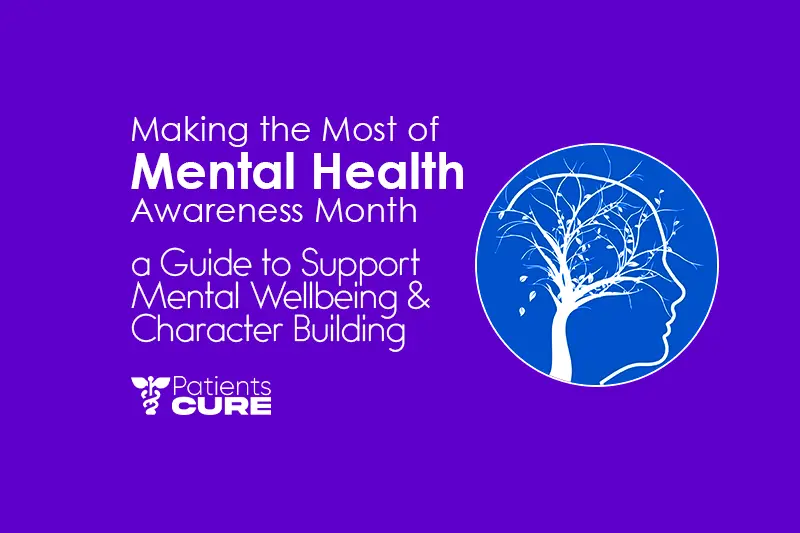Now Reading: Everything You Need to Know About Ayurvedic Medicine and its Benefits
- 01
Everything You Need to Know About Ayurvedic Medicine and its Benefits
Everything You Need to Know About Ayurvedic Medicine and its Benefits

Have you ever heard of Ayurvedic medicine? It’s a holistic healing system that has been around for thousands of years and originated in India. Ayurvedic medicine is based on the idea that the mind, body, and spirit are interconnected, and that the key to good health is to balance these three elements.
In Ayurvedic medicine, there are three doshas, or energies, that are believed to govern the body: Vata, Pitta, and Kapha. Each person has a unique combination of these doshas, which is why Ayurvedic medicine is highly personalized and tailored to the individual.
Ayurvedic medicine uses a variety of techniques to promote healing and balance, including diet and nutrition, herbal remedies, massage, meditation, and yoga. The goal is to promote health and prevent disease, rather than just treating symptoms.
One of the key benefits of Ayurvedic medicine is that it takes a holistic approach to health, addressing not just physical symptoms but also emotional and spiritual well-being. This can lead to a deeper sense of balance and harmony in your life.
In this blog post, we’ll dive deeper into the benefits of Ayurvedic medicine and explore some of the different techniques and practices that are used in this ancient healing system. Whether you’re curious about Ayurvedic medicine or looking for ways to improve your overall health and well-being, this post is for you. So, grab a cup of tea, and let’s explore the world of Ayurvedic medicine together!
Introduction: What is Ayurvedic Medicine and How Does it Work?
Ayurvedic medicine, also known as Ayurveda treatment, is an ancient system of natural healing that originated in India thousands of years ago. Ayurvedic medicine is based on the belief that the mind, body, and spirit are interconnected and that maintaining the balance between these three elements is key to achieving holistic wellness.
Ayurvedic medicine is a holistic approach to healing that uses natural remedies and techniques to promote overall health and well-being. The goal is not just to treat symptoms, but to address the root cause of the problem and restore balance to the body.
Ayurvedic medicine is highly personalized, as it takes into account each individual’s unique dosha, or energy, which is determined by factors such as personality, lifestyle, and physical characteristics. By identifying an individual’s dosha, an Ayurvedic practitioner can create a customized treatment plan that includes diet and nutrition, herbal remedies, massage, meditation, and yoga.
Ayurvedic medicine works by addressing the root cause of the problem, rather than just treating symptoms. By promoting balance and harmony in the body, Ayurvedic medicine can help prevent disease and promote overall health and well-being. It is a natural and holistic approach to healing that has been practiced for thousands of years and is still widely used today.
Why Choose Ayurvedic Medicine over Traditional Western Medicine
When it comes to healthcare, there are many options available, including traditional Western medicine and Ayurvedic medicine. While both have their benefits, Ayurvedic medicine offers some unique advantages that make it an appealing choice for many individuals seeking natural remedies for health.
One of the main advantages of Ayurvedic medicine is its focus on natural remedies and herbal remedies. Ayurvedic medicine uses natural ingredients such as herbs, spices, and oils to promote healing, rather than relying on synthetic medications. This approach can be particularly appealing for individuals who are looking for a more natural and holistic approach to healing.
Another advantage of Ayurvedic medicine is its emphasis on personalized treatment. Unlike Western medicine, which often takes a one-size-fits-all approach, Ayurvedic medicine recognizes that each individual is unique and requires a customized treatment plan based on their dosha and specific needs. This personalized approach can lead to more effective treatment and better long-term health outcomes.
Ayurvedic medicine also places a strong emphasis on preventative care, promoting healthy lifestyle habits and practices that can help prevent illness and disease. This focus on prevention can be particularly appealing for individuals who want to take an active role in their own health and well-being.
While Ayurvedic medicine may not be appropriate for all health concerns and conditions, it offers a natural and holistic approach to healing that can complement traditional Western medicine. By incorporating Ayurvedic practices and remedies into your healthcare routine, you may be able to achieve better overall health and wellness.
Exploring Different Types of Ayurvedic Treatments for Your Health Needs
Ayurvedic medicine offers a variety of treatments that can be tailored to meet the unique health needs of each individual. Ayurveda therapy treatments can be used to promote healing, prevent disease, and promote overall health and well-being.
One popular Ayurvedic treatment is Panchakarma, which is a detoxification process that involves a series of massages, herbal remedies, and other techniques to remove toxins from the body. This treatment is believed to improve digestion, boost immunity, and promote overall wellness.
Another Ayurvedic treatment is Abhyanga, which is a full-body massage that uses warm herbal oils to promote relaxation and relieve stress. This treatment is believed to improve circulation, boost immunity, and promote healthy skin.
Ayurvedic treatments also include herbal remedies, which are used to treat a variety of health conditions. For example, Ashwagandha is an herb that is commonly used in Ayurvedic medicine to reduce stress and anxiety, while Triphala is an herbal blend that is used to improve digestion and boost immunity.
Ayurvedic therapy centers offer a variety of treatments that can be customized to meet each individual’s specific needs. These centers often offer services such as Ayurvedic consultations, personalized treatment plans, and traditional herbal medicines.
Whether you are looking to address a specific health concern or simply promote overall wellness, Ayurvedic treatments can offer a natural and holistic approach to healing. By working with an Ayurvedic practitioner, you can create a personalized treatment plan that incorporates a variety of techniques and remedies to help you achieve optimal health and well-being.
How to Use Ayurvedic Medicines Safely & Effectively
Ayurvedic medicines can be a safe and effective way to promote healing and improve overall health and well-being. However, it is important to use these remedies safely and effectively in order to avoid any potential side effects or complications.
Here are some tips for using Ayurvedic medicines safely and effectively:
- Consult with an Ayurvedic practitioner: Before using any Ayurvedic remedy, it is important to consult with an experienced Ayurvedic practitioner who can help determine which remedies are best for your specific needs and dosha.
- Follow dosage instructions carefully: Ayurvedic remedies can be potent, and it is important to follow dosage instructions carefully to avoid any potential side effects or complications.
- Be aware of potential interactions: Some Ayurvedic remedies may interact with certain medications or medical conditions, so it is important to inform your healthcare provider of any Ayurvedic remedies you are using.
- Use high-quality products: To ensure safety and effectiveness, it is important to use high-quality Ayurvedic products from reputable sources.
- Practice holistic healing practices: Ayurvedic medicine is a holistic approach to healing that involves not just remedies, but also lifestyle practices such as yoga, meditation, and a healthy diet. By incorporating these practices into your daily routine, you can enhance the effectiveness of Ayurvedic remedies and promote overall health and well-being.
What are the Benefits and Common Side Effects of using Ayurveda
Ayurveda is an ancient system of medicine that offers a holistic approach to healing and wellness. There are many potential benefits to using Ayurveda, including:
- Improved digestion: Ayurvedic remedies and practices can improve digestion and relieve symptoms such as bloating, gas, and constipation.
- Reduced stress and anxiety: Ayurvedic practices such as meditation and yoga can help reduce stress and anxiety, promoting overall relaxation and well-being.
- Improved sleep: Ayurvedic remedies such as herbal teas and aromatherapy can promote better sleep and improve overall sleep quality.
- Enhanced immunity: Ayurvedic remedies and practices can boost the immune system and help protect against illness and disease.
- Improved skin health: Ayurvedic remedies such as herbal face masks and body scrubs can improve skin health and promote a healthy, glowing complexion.
However, like any form of medicine or treatment, Ayurveda can have side effects if used improperly or in excessive amounts. Some common side effects of using Ayurveda may include:
- Digestive upset: Some Ayurvedic remedies may cause digestive upset, such as nausea or diarrhea.
- Allergic reactions: Some individuals may have allergic reactions to certain Ayurvedic remedies or ingredients.
- Interactions with medications: Some Ayurvedic remedies may interact with certain medications, so it is important to inform your healthcare provider of any Ayurvedic remedies you are using.
- Use of toxic substances: Some Ayurvedic remedies may contain toxic substances, such as heavy metals, so it is important to use high-quality products from reputable sources.
Overall, Ayurveda offers a natural and holistic approach to healing and wellness. By working with an experienced practitioner and using Ayurvedic remedies and practices safely and effectively, you can reap the benefits of this ancient system of medicine while minimizing any potential side effects.




















